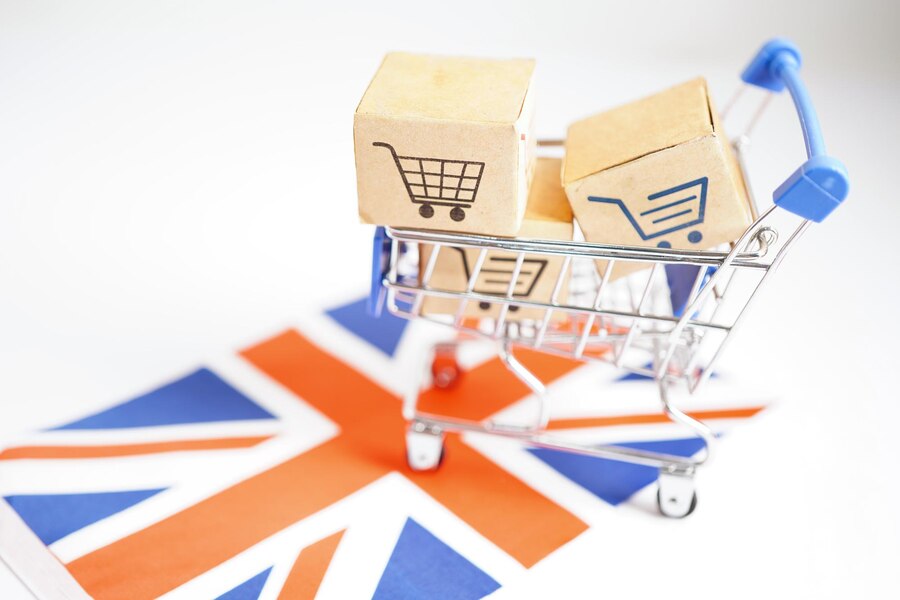The e-commerce landscape is a dynamic and exciting arena, where traditional baskets have given way to digital shopping carts. The latest FinTech solutions, Artificial Intelligence (AI), and Augmented and Virtual Reality (AR/VR) are transforming the e-commerce scene. We spoke to Payrow, a British FinTech company that offers financial services to SMEs in the retail and e-commerce sectors. We discussed how these solutions are changing the e-commerce landscape.
The Rise of E-Commerce and Multi-Channel Shopping
The e-commerce landscape is growing rapidly. By 2026, experts predict that global retail e-commerce sales will rise from about 6 trillion US dollars to over 8 trillion. This means a huge change in how consumers shop and how markets work.
Modern shoppers are adventurers, using different channels on their way to buy. An amazing 73% of retail consumers now shop on various platforms, moving smoothly between online and offline worlds. This omnichannel way of shopping has become what customers expect. Retailers who skillfully use this multi-channel approach and connect with customers through three or more channels see a huge 251% increase in how often customers buy from them compared to those who use only one channel. These facts, from a detailed study by Capital One Shopping, show the clear truth: in e-commerce, being flexible and present on multiple channels is key to attracting and keeping customers.
Omnichannel plans require the use of different technological solutions, making the customer experience easier in the buying process.
Artificial Intelligence in E-Commerce: A Game Changer
The e-commerce sector adopted Artificial Intelligence (AI) as a key element in 2023, moving from a futuristic idea to a reality. The use of this technology in e-commerce is widespread, with 97.2% of businesses investing in big data and AI.
AI allows for unmatched personalization of customer paths and suggestions, creating a shopping experience that feels custom-made. It also improves operational aspects like supply chain logistics and inventory management, boosting business effectiveness and agility.
The 2023 holiday shopping season, analyzed by Salesforce, had the highest average discount rate since 2020, with AI playing a major role in purchases. This period also highlighted an interesting trend: commerce professionals using AI saved an average of 6.4 hours per week. AI is not just a trend but a vital part of modern e-commerce strategy.
AR and VR: Making E-Commerce Immersive
The e-commerce sector has entered a new phase with Augmented Reality (AR) and Virtual Reality (VR), giving shoppers engaging and amazing experiences. A big problem in online shopping has been the lack of ability of customers to “try before they buy.” But AR and VR technologies have changed this.
Now, shoppers use smartphones to “try on” clothes or test makeup virtually, thanks to creative UK companies like ASOS that use AR for virtual try-ons. Burberry also uses AR, in its app for interactive events and collections. In the car industry, Jaguar Land Rover uses VR for virtual test drives and customization options, making the decision-making process better.
The use of these creative technologies has helped a lot in lowering customer worries related to online purchases. According to a survey by Snap/Publicis Media, a surprising 80% of shoppers say they feel more confident in their purchases when using AR or VR, leading to a big 66% drop in return rates. With e-commerce businesses in different sectors using these advanced technologies, the future of online shopping seems to be getting even more fun and attractive.
Fintech and E-Commerce: A Strategic Alliance
The e-commerce sector has changed strategically with the integration of FinTech. For several years, FinTech companies have made life easier for retailers and users in Britain by providing more relevant solutions. The growth in tech-savvy consumers has matched the rise in digital-only bank offerings. The pandemic sped up this move to digital banking channels as many physical outlets shut down and face-to-face interactions reduced. This change made FinTech solutions like Payrow more essential for businesses to manage their financial operations well.
Payrow says that FinTech companies are different for their modular and flexible technology. They provide a variety of services, such as pay-in and payout options, e-wallet solutions, and strong anti-fraud measures. This flexibility makes them perfect partners for e-commerce platforms, letting these platforms customize payment solutions to their specific needs.
For example, the possibility of integrating Payrow with Amazon, Shopify, Etsy, and eBay creates many opportunities for retailers. This integration makes sales and transaction management easier, ensuring a smooth and effective payment process. It makes handling multiple accounts simpler, giving clearer insights and faster transactions. The direct payment system through Payrow offers quick and safe transaction processing, improving cash flow and helping business growth. During busy seasons, Payrow’s integration turns the problem of increased activity into a growth chance, letting businesses do better than competitors and improve their market positions.
Also, FinTech partnerships offer a level of operational flexibility and data-driven insights that traditional financial institutions find hard to match. These insights help e-commerce platforms to better understand customer behavior and payment choices, leading to smarter business decisions and strategies.
UK E-Commerce Thrives with Innovation
E-commerce has a bright future, thanks to innovation, changing consumer preferences, and technological solutions. UK businesses are leading the way in Europe’s technological progress. For example, 90% of UK SMEs have adopted contactless payments, beating Switzerland, Italy, France, and Germany. This sector grew by a remarkable 36% from 2020 to 2022, while cash transactions dropped by 35%. To thrive in this dynamic digital market, businesses need to be innovative and adaptable.





Leave a Reply